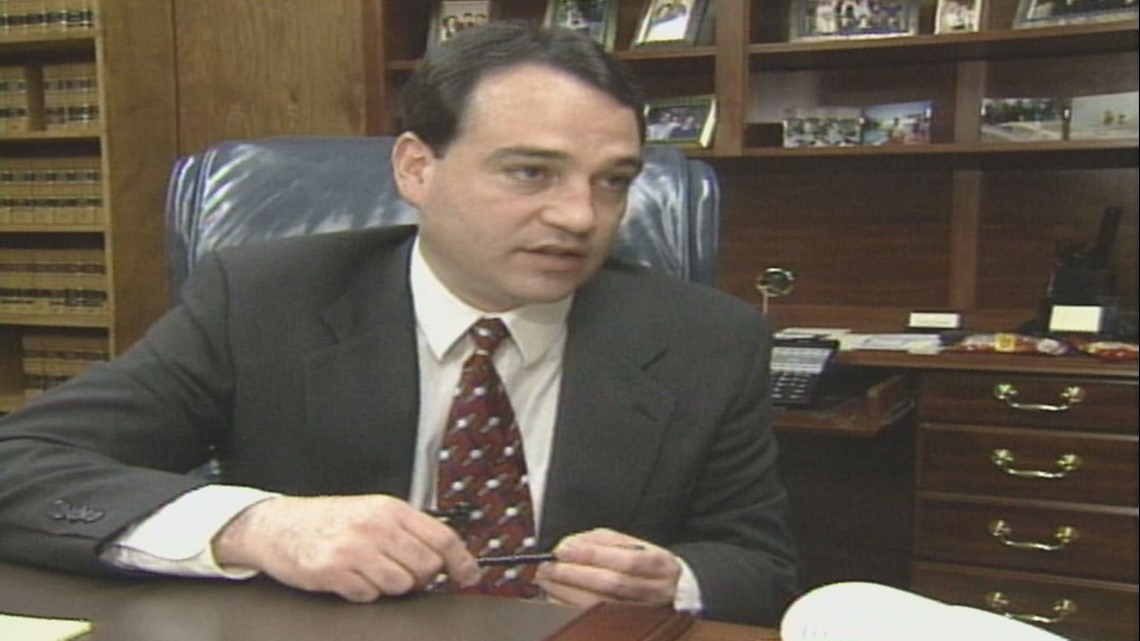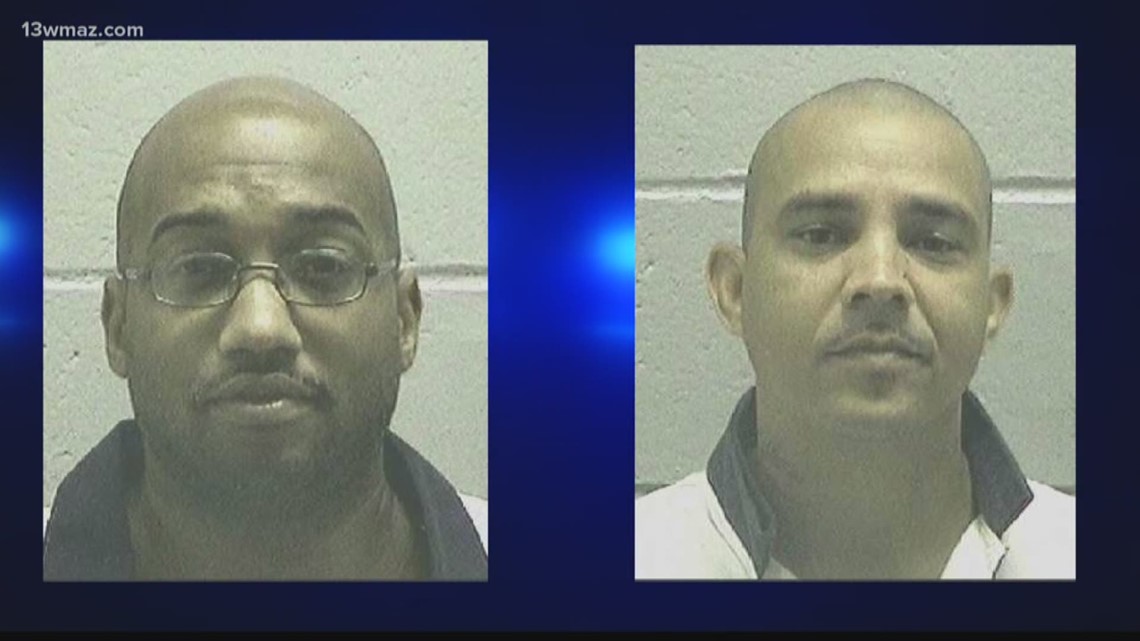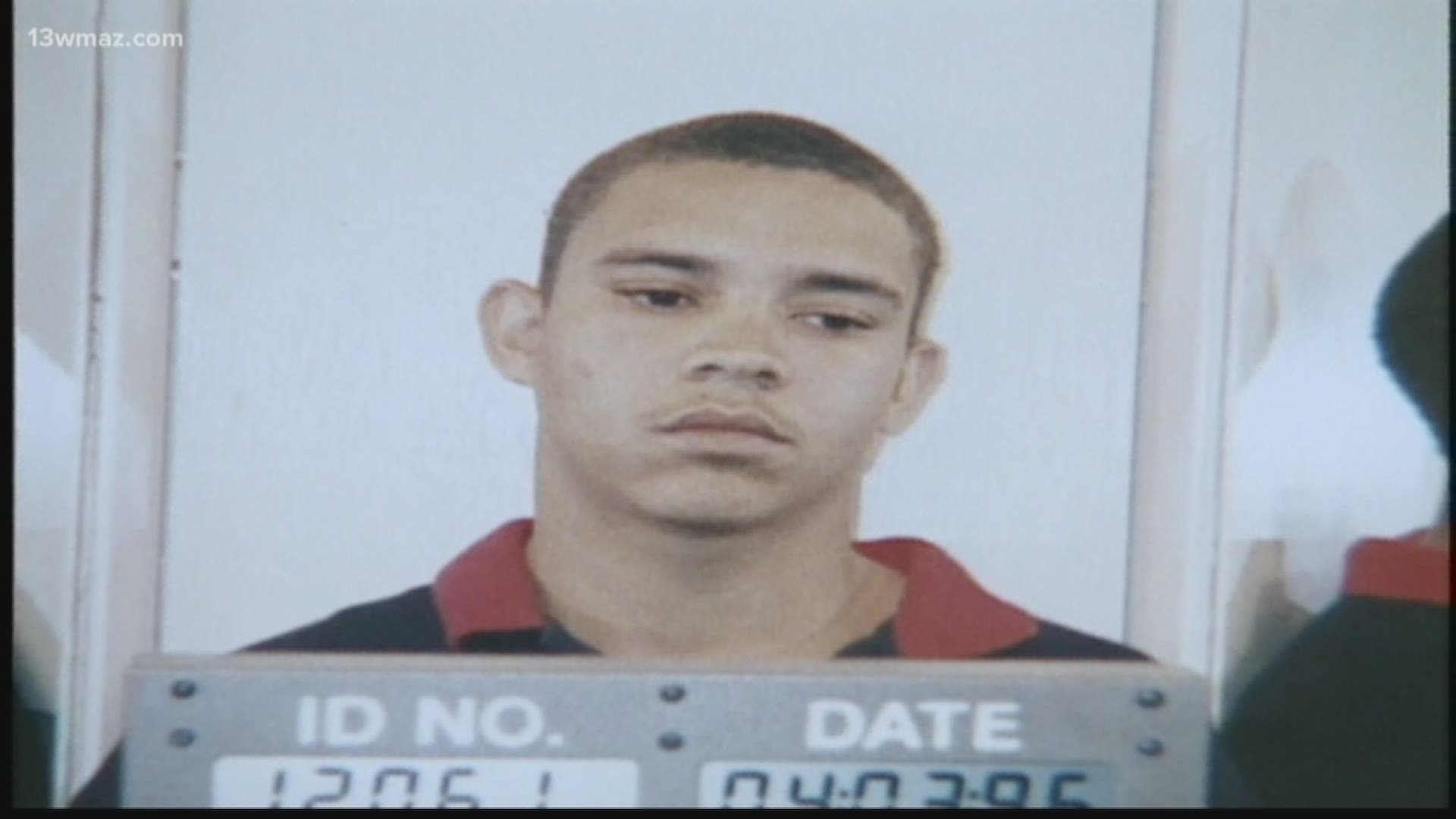MILLEDGEVILLE, Ga. — Lawyers for Marion Wilson say the prosecutor who put him on death row gave shifting statements on who really killed Donovan Parks 23 years ago.
Wilson is scheduled to die by lethal injection Thursday night for the 1996 Milledgeville murder.
A state board is scheduled to hear Wilson's clemency appeal Wednesday.
The appeal petition, released Monday by the board, says Wilson faces execution due to "misconduct" by longtime District Attorney Fred Bright, who died last year.


In 1997, a Baldwin County jury convicted Wilson in the killing. The next year, another jury convicted Robert Earl Butts, Jr.
But according to both men's lawyers, the juries heard very different stories about what happened.
In their petition, Wilson's lawyers concede there was enough evidence to convict him of murder. But they say Supreme Court rulings say states should not execute defendants who take part in a felony, but do not "kill, attempt to kill, or intend that a killing take place."
"Does it make a difference? Of course it does."
On March 28, 1996, Parks went to the Milledgeville Walmart to get cat food and left his car parked in the fire lane at the store.
A witness saw Wilson and Butts in line behind Parks. The two men asked him for a ride and got in his car.
Prosecutors said Parks drove them to Felton Street in Baldwin County and one of them shot him once in the back of the head. Then, Wilson and Butts torched Parks' car and drove away, prosecutors said.
Butts was executed last year. In his clemency appeal last year, his lawyers claimed Wilson was the shooter.
Now Wilson's lawyers are arguing the opposite.
Their clemency appeal says Wilson should not be executed, because he was not responsible for the killing. They say he knew Butts planned to rob somebody that night, but not that he intended to kill somebody.
They're also blaming Bright. They say the former district attorney was so eager for death-sentence convictions that he told one jury Wilson pulled the trigger and a year later told a different jury Butts was the shooter.
According to Wilson's appeal, Bright told the Butts jury, "Does it make a difference who pulled the trigger? Of course it does."
"I wasn't there. We weren't there."
The Wilson petition then highlights Bright's conflicting statements on which man actually killed Parks.
They claim "Bright certainly believed" Butts was more at fault, and he offered Wilson a life sentence with parole. When Wilson turned that down, they say, Bright sought the death penalty.
During the first phase of Wilson's trial, they write, Bright said prosecutors couldn't say who was the killer: "The state cannot prove for sure who pulled the trigger in this case. I'll tell you that point blank. I wasn't there. We weren't there."
But arguing for the death penalty after Wilson was convicted, they say, Bright told the same jury, "That man right there took that shotgun and fired it... right into the back of that man's head."
A year later, Wilson's lawyers argue Bright contradicted himself. During Butts' trial, they write, the district attorney told the jury, "We proved that the man that in fact pulled the trigger and blew out the brains of Donovan Corey Parks is the defendant, Robert Earl Butts, Jr."


Wilson's lawyers argue it was "unethical and a violation of due process" for Bright to make contradictory arguments to two different juries.
Their petition argues, "Today it is plain that Bright never thought Marion was the actual killer of Donovan Parks and could win a death sentence for Marion only by falsely claiming that he was."
They write, "Bright's misconduct has never been properly considered by a reviewing court."
A footnote to the Wilson petition calls Bright "the most zealous death-penalty prosecutor in Georgia," winning 21 death sentences in 10 years.
Bright died last year after 34 years as a prosecutor in Milledgeville, but his successor, Ocmulgee Circuit District Attorney Stephen Bradley, called the criticism of Bright "absurd."
Bradley, who assisted Bright in prosecuting both cases, said, "He led us to do what you always do, which is what's considerate, decent, and fair."
"These two people worked together to accomplish the murder of Donovan Parks," he said. While Butts probably pulled the trigger, he said, "he likely did it at the instruction and direction of Wilson."
Wilson's lawyers also argue Bright exaggerated Wilson's criminal record as a juvenile and his involvement in gangs.
They write that Wilson's life of "instability, neglect, abuse, and trauma" merit clemency. They also claim his mother's drug use during pregnancy likely caused brain damage, but the jury that sentenced Wilson to death never heard testimony about that.
"There is no reliable evidence"
Last year, lawyers for Butts argued unsuccessfully that false testimony put him on death row.
Their own clemency petition said, "There is no reliable evidence that Robert Jr. shot Donovan Parks or confessed to doing so."
And they argued Wilson actually killed Parks.
They say Wilson convinced two other jail inmates to testify that Butts confessed to the killing. Those two witnesses later gave statements admitting they lied, their petition says.
Butts' clemency petition stated one of those witnesses said Wilson admitted that he shot and killed Parks himself, "and that Robert Jr. had no idea he planned to do so."
A Georgia Bureau of Investigation agent also testified that, based on a polygraph, he believed Wilson was the shooter, Butts' lawyers wrote.
But the State Board of Pardons and Paroles rejected those and other arguments last year, and Butts was executed on May 4, 2018.
Now, the same state board is scheduled to hear arguments for and against clemency for Wilson when they meet Wednesday at 9 a.m. at their offices in Atlanta.
His lawyers have asked the board to grant him parole or re-sentence him to life in prison without parole. They're also asking the state board to stay his execution for 90 days to consider the case fully.
Wilson is scheduled to be executed Thursday sometime after 7 p.m. at the state's death-row prison in Jackson.

